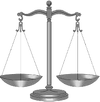Assessment |
Biopsychology |
Comparative |
Cognitive |
Developmental |
Language |
Individual differences |
Personality |
Philosophy |
Social |
Methods |
Statistics |
Clinical |
Educational |
Industrial |
Professional items |
World psychology |
Philosophy Index: Aesthetics · Epistemology · Ethics · Logic · Metaphysics · Consciousness · Philosophy of Language · Philosophy of Mind · Philosophy of Science · Social and Political philosophy · Philosophies · Philosophers · List of lists

|
| Evidence |
|---|
| Part of the common law series |
| Types of evidence |
| Testimony · Documentary evidence |
| Physical evidence · Digital evidence |
| Exculpatory evidence · Scientific evidence |
| Demonstrative evidence |
| Relevance |
| Burden of proof |
| Laying a foundation |
| Subsequent remedial measure |
| Character evidence · Habit evidence |
| Authentication |
| Chain of custody |
| Judicial notice · Best evidence rule |
| Self-authenticating document |
| Ancient document |
| Witnesses |
| Competence · Privilege |
| Direct examination · Cross-examination |
| Impeachment · Recorded recollection |
| Expert witness · Dead man statute |
| Hearsay (and its exceptions) |
| Excited utterance · Dying declaration |
| Party admission · Ancient document |
| Declaration against interest |
| Present sense impression · Res gestae |
| Learned treatise |
| Other areas of the common law |
| Contract law · Tort law · Property law |
| Wills and Trusts · Criminal law |
In law and in religion, testimony is a solemn attestation as to the truth of a matter.
Legal testimony[]
In the law, testimony is a form of evidence that is obtained from a witness who makes a solemn statement or declaration of fact. Testimony may be oral or written, and it is usually made by oath or affirmation under penalty of perjury. Unless a witness is testifying as an expert witness, testimony in the form of opinions or inferences is generally limited to those opinions or inferences that are rationally based on the perceptions of the witness and are helpful to a clear understanding of the witness' testimony.
A subpoena commands a person to appear. It is compulsory to comply.
When a witness is asked a question, the opposing attorney can raise an objection ([1], [2]), which is a legal move to disallow an improper question, preferably before the witness answers, and mentioning one of the standard reasons, including:
- argumentative
- asked and answered
- calls for speculation
- calls for a conclusion
- compound question
- hearsay
- irrelevant, immaterial, incompetent
- lack of foundation
- leading
- narrative
There may also be an objection to the answer, including:
- non-responsive
Up until the mid-20th century, in much of the United States, an attorney often had to follow an objection with an exception to preserve the issue for appeal. If an attorney failed to "take an exception" immediately after the court's ruling on the objection, he waived his client's right to appeal the issue. Exceptions have since been abolished, due to the widespread recognition that forcing lawyers to take them was a waste of time.
Religious testimony[]
In religion, testimony generally involves an inward belief or outward profession of faith or of personal religious experience. In some religions (most notably Mormonism and Islam) many adherents testify as a profession of their faith, often to a congregation of believers. In Mormonism, testifying is also referred to as "bearing one's testimony," and often involves the sharing of personal experience—ranging from a simple anecdote to an account of personal revelation—followed by a statement of belief that has been confirmed by this experience. In addition to outward professions of faith, testimony also may refer to an inwardly-held belief, even if not shared.
Testimony in literature[]
Some published oral or written autobiographical narratives are considered "testimonial literature" particularly when they present evidence or first person accounts of human rights abuses, violence and war, and living under conditions of social oppression. This usage of the term comes originally from Latin America, and the Spanish term "testimonio" when it emerged from human rights tribunals, truth commissions, and other international human rights instruments in countries such as Chile and Argentina. One of the most famous, though controversial, of these works to be translated into English is I, Rigoberta Menchú. The autobiographies of Frederick Douglass can be considered among the earliest significant English-language works in this genre.
See also[]
- Cross-examination
- Daubert Standard
- Deponent
- deposition
- Direct examination
- Hostile witness
- In limine
- Leading question
- Redirect examination
- Strike from the record
- Testimony, philosophical problems of
External links[]
- TestimonyBlog Examples of Christian testimonies
he:עדות